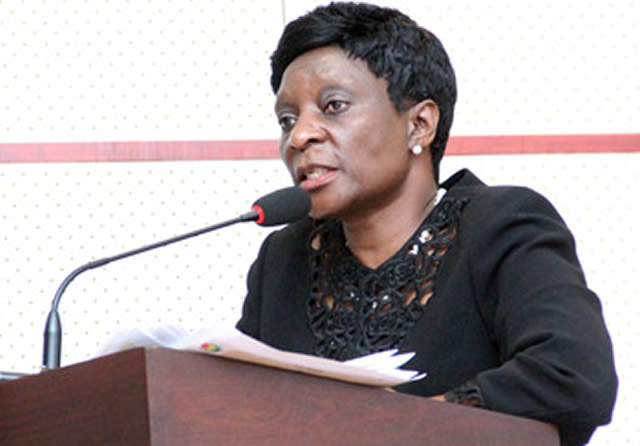Zim opposition & myth of the whiteman’s burden

Joram Nyathi, Spectrum
If opposition parties want electoral reforms, the legislative route is provided for in the Constitution and ZEC is a creature of the same. It doesn’t make laws and cannot allocate itself functions beyond what is in the Constitution
I FEEL sorry for Justice Rita Makarau, very sorry. Yet she cannot claim not to have been cautioned against treading too far into the mud of politics. We have warned her in the past, not once but twice. The latest being last week. Simply to say the issues being raised by Nera, or now something called Political Parties Dialogue Platform, were outside ZEC’s ambit, that the electoral body would find itself rolling in the mud with the pigs.
That’s not been long in coming.
We are a constitutional democracy and the Constitution is very clear from Sections 233-239 on the objectives of independent commissions, who qualifies to be appointed a commissioner and more specifically, the functions of the Zimbabwe Electoral Commission.
Section 235 says independent commissions “must exercise their functions without fear, favour or prejudice” and that “no person may interfere with the functioning of the independent commissions”.
Members of ZEC must be Zimbabwean citizens and “chosen for their integrity and experience and for their competence in the conduct of affairs in the public or private sector”. They should not be members of political parties.
Section 239 then sums up the functions of ZEC; “to prepare for, conduct and supervise elections” in Zimbabwe. It must register voters, compile voters’ rolls, delimit constituencies and ward boundaries, to establish and operate polling centres, to conduct and supervise voter education and to accredit election observers.
We are a democracy. Criticism of public officials comes with the territory. And that’s the least of our worries. ZEC is a State-funded entity and should be subjected to scrutiny in the execution of its functions. Including its officers if they are seen to act as agents of political parties.
We, however, first raised the red flag when political parties started demanding (and ZEC seemed to indulge this) electoral reforms from ZEC and wanted a role in the identification and demarcation of ward polling centres.
They also wanted a more active role in ZEC’s daily operations, starting even before the watershed July 2013 harmonised elections under the new Constitution. (We believe there must be a reasonable line between seeking transparency and interference, and we all want transparency in the conduct of our national elections.)
Over time, as their prospects of winning the next elections have become dimmer, opposition parties have become more importunate and direct in their demands on ZEC, almost pushing it to amend rather than faithfully observe, the electoral law. They started behaving like piranha after tasting the blood of their potential victim. No doubt because Justice Makarau had allowed them to taste the blood; she allowed them to encroach the boundary and tread and intrude into the ZEC mandate.
Then they began attacking her person and impugn her integrity when she finally realised they wanted to coopt her into their camp.
We had warned earlier in the Spectrum that Justice Makarau would not be able to meet all the demands being made on ZEC by the opposition because most such demands were a carry-over from the political baggage which rendered the inclusive government almost dysfunctional from 2009, and they sought to use the same to stop the holding of elections in 2013 until one Mawarire went to court.
They have already warned that they want ZEC to change the law or they will make it impossible for it “to prepare for, conduct and supervise” a credible election in 2018 through demonstrations or disrupting voting. A repeat attempt.
Fortunately ZEC, together with other independent commissions, has the law on its side. Section 235 (2) is clear; “The State and all institutions and agencies of government at every level, through legislative and other measures, must assist the independent commissions and must protect their independence, impartiality, integrity and effectiveness.”
That is why the police are always ready to protect ZEC offices and its staff, including the chairperson. If opposition parties want electoral reforms, the legislative route is provided for in the Constitution and ZEC is a creature of the same. It doesn’t make laws and cannot allocate itself functions beyond what is in the Constitution.
It does appear reality finally hit Justice Makarau this week when NERA or the Political Parties Dialogue Platform members pointedly demanded that ZEC be disbanded and she be ousted from her chair. A meeting scheduled for Wednesday this week was abandoned when Justice Makarau realised there would never be a meeting of the minds because the objectives were at a tangent.
She didn’t object to fair criticism. She has endured that ever since she was appointed by the President anyway.
That is why she thought dialogue might help, believing there were genuine issues which ZEC could address within its remit. But she has now noticed an element of abuse.
This is what she said on Wednesday; “We say no to abuse by anybody, political parties or any other stakeholder. And because we are beginning to feel that our engagements are being misunderstood, we believe it is time for ZEC to go back to the drawing board and see how best we can engage with you.”
Then this moment of epiphanic awakening; “We called you to dialogue, but you do not want to dialogue with us in good faith.”
That is the reason we feel sorry for Justice Makarau, very sorry. Unless I have missed something in the Electoral Act, the Constitution doesn’t openly authorise ZEC to form political subcommittees to help it prepare for elections. She went out of her way, at the risk of violating the law, to meet with NERA or the Political Dialogue Platform so ZEC could conduct an election whose result would not be contested.
Well, now Rita, that’s a mission impossible in Zimbabwe.
Not with the calibre of opposition parties we have. Here is why: despite assurances by “experts” that the biometric voter registration kits are foolproof, and that we only require them to capture voters’ data, not for voting purposes on election say, they don’t want the Republic of Zimbabwe involved in the acquisition of the BVR kits.
This national assignment should be delegated to the United Nations Development Programme. They wanted Justice Makarau and her secretariat to accede to this demand as part of “electoral reforms”.
It gets worse. It’s no longer just about Western observers being invited to validate our elections; they must now take over.
The opposition wants Sadc, or the African Union or the United Nations to run or supervise our elections. Anyone but Zimbabwe. No questions asked about “their independence, impartiality, integrity and effectiveness”.
Perhaps that’s what jolted Justice Makarau!
If they can compel her to resign, that should be a thunderous victory.
And we know who is meant by United Nations. That’s what is most depressing: Most nations are looking at strengthening internal systems to protect themselves and the integrity of their electoral processes, here we are, products of slavery and colonial abuse pining for the barely defeated former master to return to show us how it is done; to rig himself back into perpetual lordship.
There are times when one is left with a feeling that the sacrifices of the liberation struggle and all the investment in higher education might have gone to waste.
With the emerging so-called progressive leadership, how does Africa cure itself of this desire to return into the colonial womb for succour and security?












Comments